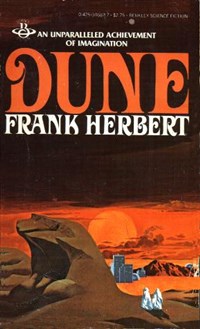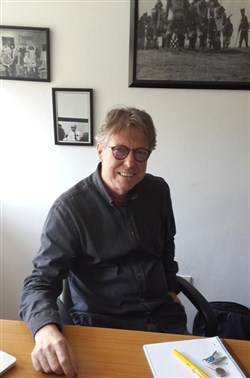Asst. Prof. Andreas Treske, Department of Communication and Design
BY MELİS ERDEM (ARCH/II)
To be honest, I don’t know what book has influenced me most. I read a lot; I always have always 10 or so books at my bedside. I studied literature and film, so naturally I read a lot. I couldn’t name a single favorite book, but I can tell you about a book that was very influential for me when I was 16. It was Frank Herbert’s “Dune,” a science fiction novel.
The first book I got as a gift and then started to read was by the German author Karl May, who wrote fantasy adventure stories. The book, which is usually given to boys who are 9 or 10 years old, is about this Indian chief named Winnetou. The first novel in the series is “Winnetou I,” then there’s “Winnetou II,” and “Winnetou III.” My family gave me one book for my birthday, another for Christmas and another for Easter. When you start reading stories like this, you want to become a hero; you see yourself fighting bad guys when they occupy the land, and trying to get it back from them.
So, I started to read more about Indians, but at the same time, because I got so used to reading that kind of literature, a friend of mine introduced me to science fiction. And I read this huge book—more than six hundred pages—by Frank Herbert, which is like a novel about the Byzantine Empire but tells a story that takes place 21,000 years in the future: about kings, knights, people living on faraway planets, strange planets. It has this typical theme: a young guy has to save the world somehow.
In the book, the Atreides are fighting against the Harkonnens. But they are under a ban from the empire, and live on a planet where you can’t actually live. You can somehow maintain yourself using your own body’s moisture with the help of an extra suit you have to wear to survive on this planet. It’s like a big desert.
 “Dune” is actually a very substantial, ecological novel. The planet may not be a good place to live, but it’s the source of a very valuable substance that can enhance mental abilities, like a kind of drug, which space pilots need to use to overcome the space-time continuum. The hero’s mother is the leader of a secret women’s sect, which is another very interesting theme, in that girls don’t appear only as princesses, like in Star Wars for example.
“Dune” is actually a very substantial, ecological novel. The planet may not be a good place to live, but it’s the source of a very valuable substance that can enhance mental abilities, like a kind of drug, which space pilots need to use to overcome the space-time continuum. The hero’s mother is the leader of a secret women’s sect, which is another very interesting theme, in that girls don’t appear only as princesses, like in Star Wars for example.
I found an article in the Guardian, referring to this novel—which was written in 1959—and discussing all the different topics Herbert had included. If you read the book now, it’s such a shock to see how he was already handling those topics: the Syrian conflict, Islamic state, the ecological problems we have in the world today are foreshadowed there. And I had to go back to the book to see if this made sense, because of course some of this is just an interpretation. But no, the problems were indeed already envisioned there.
So, the most important thing for me was that I read “Dune” when I was 16, a time in life when you are finding your own identity, the answers to questions about who you are, what you want. You have this kind of boyish feeling that you need to become a man, but apparently you aren’t there yet. Another important thing was that if I hadn’t read the book, I wouldn’t have written some of what I’m writing today academically, or had ideas for the kind of films I am interested in doing, which are related to building worlds, telling stories and dealing with technology. “Dune” first pointed me in the direction of techno fantasy.

